21 March 2024
Dr Hercules Konstantopoulos recently joined the Malaghan Institute as Head of Data Science in the Hugh Green Cytometry Centre. From astrophysics to renewable energy, his background working with data of all kinds ideally positions him to help release the full potential of our research.
“Science starts and ends with data,” says Hercules. “Any experiment, no matter how meticulously planned or advanced the technology, can only be as good as the quality of the data obtained and the strategies used to analyse the data.”
Data analysis refers to the process of extracting meaning from experimental data, often involving extensive statistical investigation to understand what the data are telling us and how reliable these results are. At the Malaghan Institute, data analysis is pivotal to every research area, from cancer, allergies and inflammation, to infectious disease and across all our clinical trials.
“Science is done the same way it has always been done, we ask questions and record answers,” says Hercules.
“What’s different these days is the amount of information that can be generated from a single experiment due to technological advancements over the last few decades. This has been a major step change in biological research.”
To make sense of the swathes of data produced in an experiment, data processing and analysis has had to go through equivalent advances. The study of coding and computer programming, previously a niche area of computer science, has joined forces with biology. This has resulted in the development of the bioinformatics field.
“Due to how quickly this change has occurred, the education system is striving to catch up. Coding is now becoming a ubiquitous subject taught alongside reading, writing and maths at primary schools, however thereis a knowledge gap in our current generation of scientists.”
“Our aim is to bridge this gap and enable our scientists to pursue their research while overcoming the barriers posed by the need for more advanced data handling and analysis.”
With its array of cutting-edge technologies and expert scientists, the Hugh Green Cytometry Centre propels scientific exploration at the Malaghan Institute to the forefront of what is currently possible. Hercules is the latest addition to this technological powerhouse. He is here to provide expert data science support to Malaghan Institute researchers and external collaborators, developing robust tools so that running projects and working with data can be carried out more effectively and efficiently.
“Our long-term goal at the Malaghan Institute is to be a leader for data science in biology, both in the excellence of the research we undertake and in the quality of the training we provide.”
“Something that is important to distinguish is the difference between bioinformatics and data science. Where bioinformatics is concerned solely with the processing and analysis of biological data, data science is much broader and applies to fields such as finance, tech, energy, marketing, health and a plethora of other industries,” he says.
“Data science thrives on rapid innovation, unimpeded by conventional barriers.”
Hercules believes that, as an independent research organisation, the Malaghan Institute is uniquely positioned to leverage the best of both worlds: depth of academic inquiry combined with the agility and innovation of data science as applied to other sectors.
“This enables us to break free from the constraints of academic convention while our ultimate aim remains steadfast: to harness the research and technological advancements of the Malaghan Institute to improve human health.”
A significant part of Hercules’ role is providing current bioinformaticians with resources to learn the most effective programming languages and setting up the right tools and training for them to analyse biological data in the most optimal way.
“Our long-term goal at the Malaghan Institute is to be a leader for data science in biology, both in the excellence of the research we undertake and in the quality of the training we provide,” says Hercules.
“In this role, I feel that I’ve found a good balance of being able to apply what I’ve learned over my career to solve problems and support research, while fulfilling my passion for teaching others what I know.”
Hercules encourages young scientists to shoot for the stars, just as he did, quite literally. Growing up in the countryside near the town of Ioannina, Epirus in Western Greece, he committed to a career in astrophysics at the tender age of eight.
“Both my parents were medical researchers, and I was adamant that this was not the path I wanted to take, ironic considering my role now, I know,” says Hercules.
“On any clear night we would have a sky full of bright stars which captivated me entirely, and I was obsessed with understanding why the Milky Way looks the way it does.”
Hercules undertook his undergraduate degree and PhD at University College London where he fostered a growing passion for telescopes. He had the opportunity to work with some of the largest optical telescopes in the world at Gemini Observatory and the European Southern Observatory in Chile.
“I was investigating the chemical composition of star clusters formed in the wake of major galaxy-galaxy collisions,” says Hercules.
“The science was novel because we analysed the data in a new way. I came up with a new technique so we were able to get a lot more information from the data than people had ever done before.”
It was here that Hercules cultivated his passion for teaching.
“It was perhaps the most fun part of my PhD, I was assisting with teaching the third-years at the telescope! I loved passing on my knowledge to eager students. It’s part of the reason why my role at the Malaghan captivated me.”
He then went to Pennsylvania in the US to pursue a postdoctoral research programme with Professor Jane Charlton who pioneered work on quasars, maelstroms of dazzlingly luminescent gas falling into supermassive blackholes.
Hercules went on to work in the Australian Astronomical Observatory, in a team that developed and commissioned a novel telescope spectrograph, before exploring roles in various sectors, all working with data, from renewable energy to enterprise software.
“Transitioning away from this tightly knit field was a huge change, I’d had this goal to be an astronomer since I was eight years old and now, I was walking into something unfamiliar. I was going into the real world which is governed by an entirely different set of principles to academia.”
“The subject matter of all these industries were foreign to me but they all involved trying to optimally process and analyse data.”
At the end of 2023, Hercules started as the newly created Head of Data Science at the Malaghan Institute.
“In this role, I feel that I’ve found a good balance of being able to apply what I’ve learned over my career to solve problems and support research, while fulfilling my passion for teaching others what I know.”
“Most of all, I appreciate the impact the Malaghan Institute’s research has the potential to achieve. When I was working in astronomy and something went wrong, we used to say, ‘Oh well, we’re not curing cancer!’ I certainly can’t say that anymore.”
Related articles
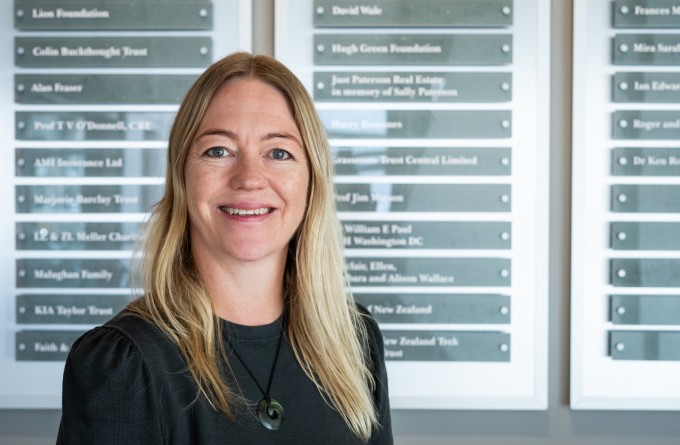
Distinguished service award for head of Hugh Green Technology Centre
20 May 2025
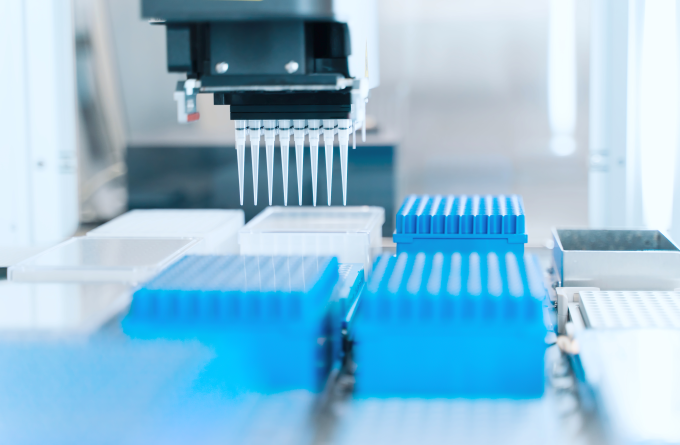
Boost for medical research with new blood processing service for clinical trials at Malaghan
19 May 2025
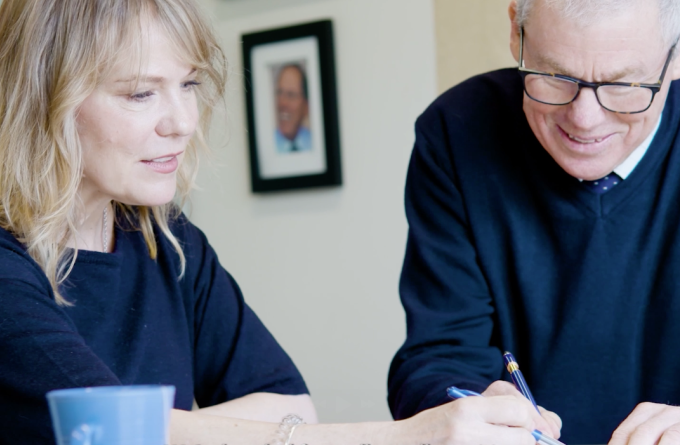
Kjesten Wiig: bringing life-changing treatments to life
27 February 2025
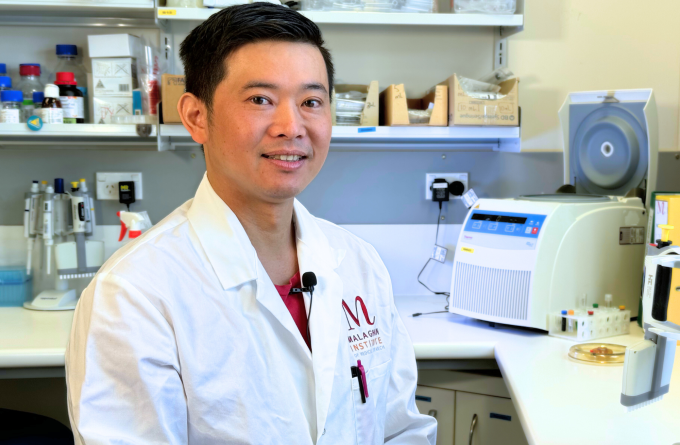
Fighting allergic skin disease at its root
17 December 2024
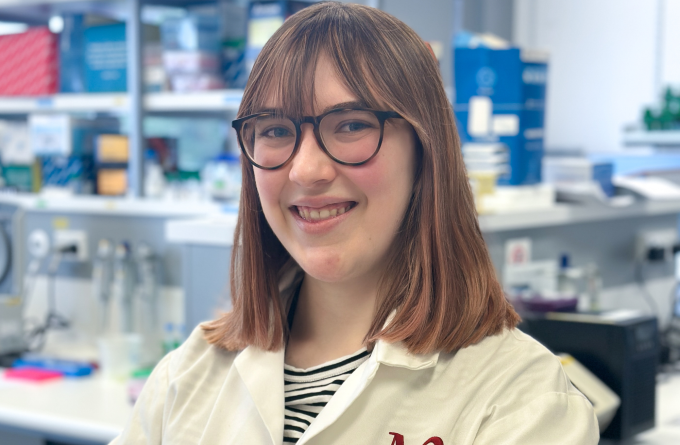
As easy as breathing: the future of vaccines
31 October 2024
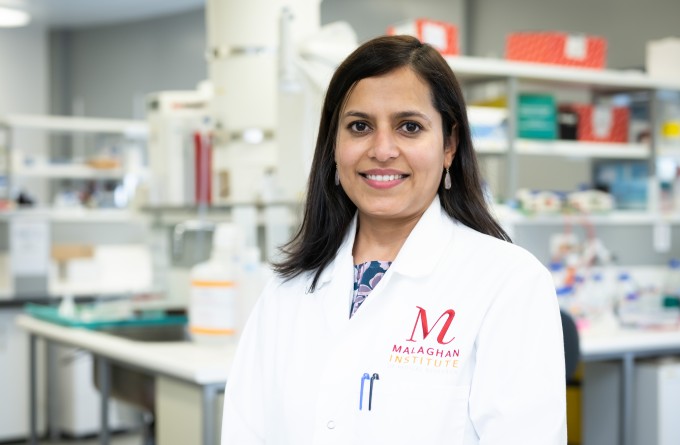
CAR T-cell therapy, the battle of the blood cells
26 September 2024
